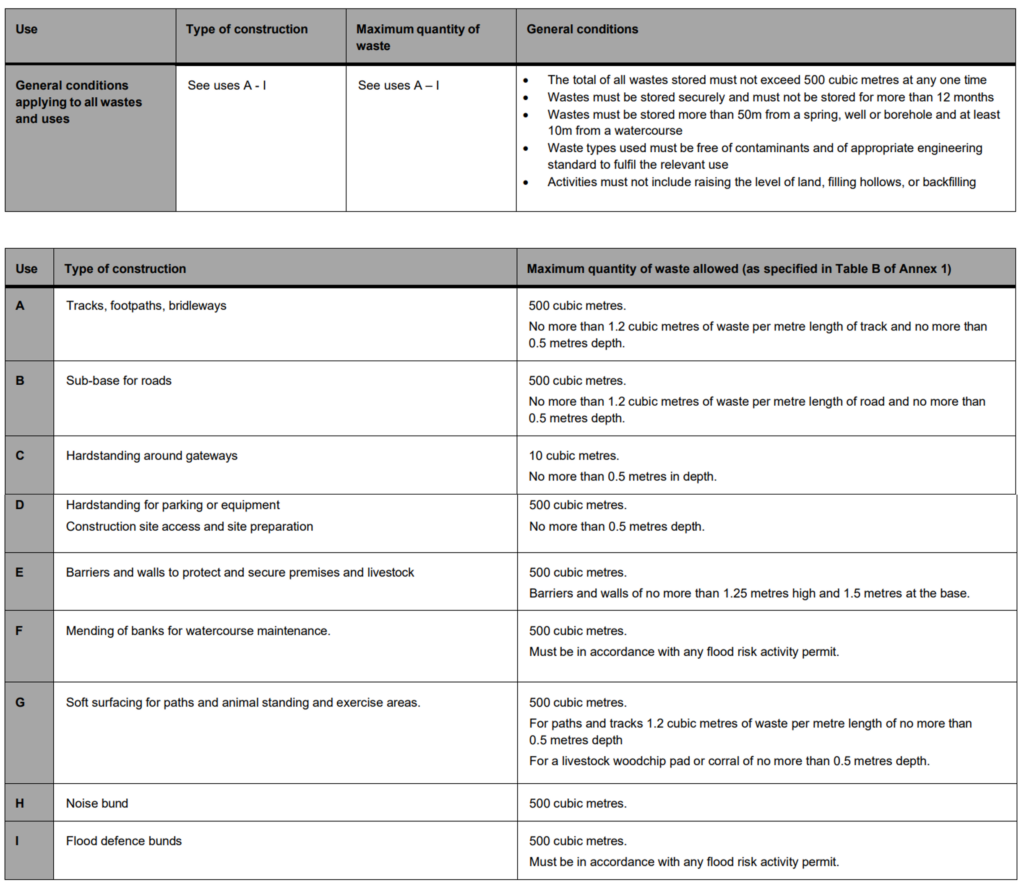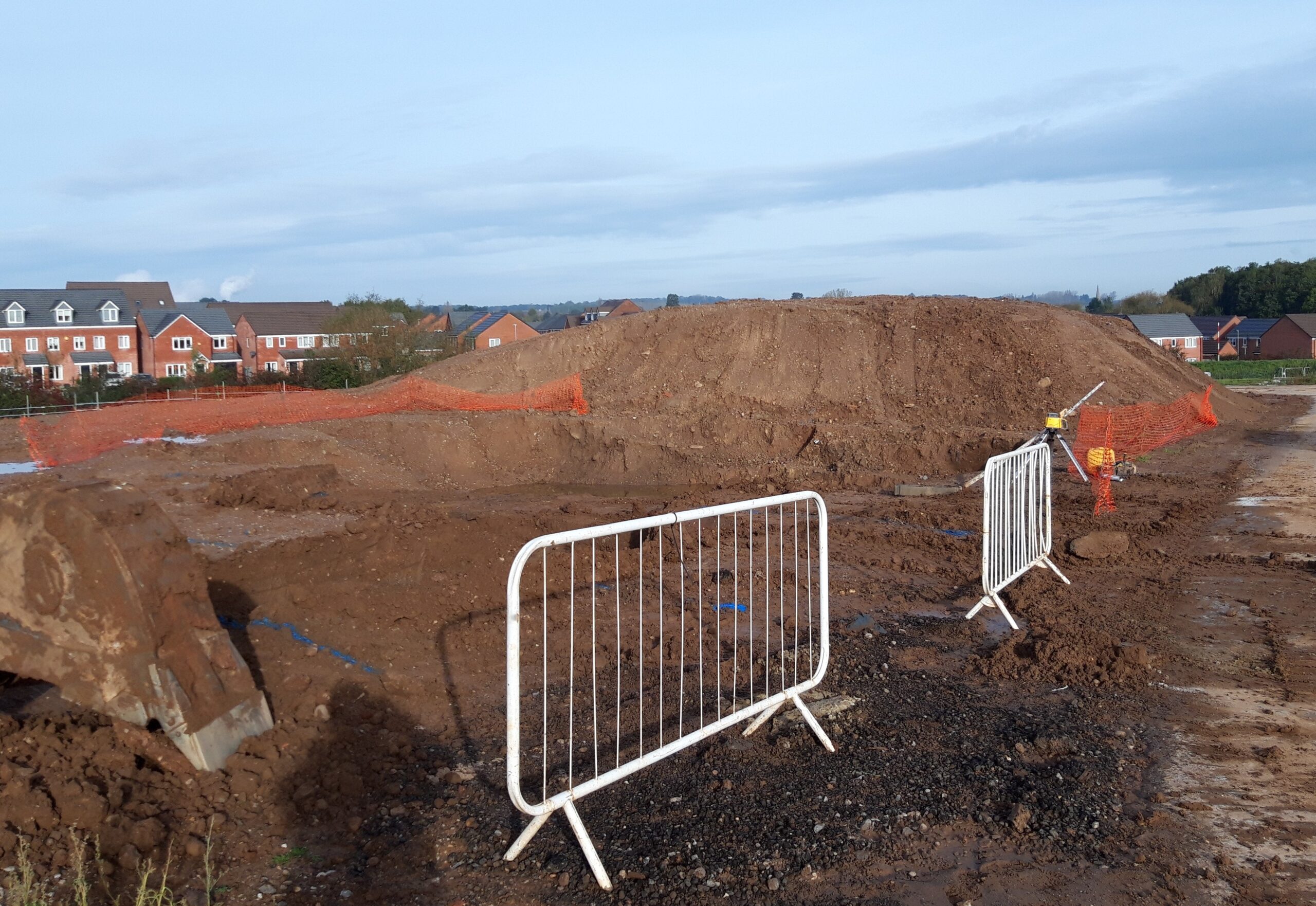The disposal of waste soils is an often overlooked cost and risk for any development, and for brownfield sites in particular.
With disposal prices ranging from around £11 per tonne for lower rated soils (inert) to £160 per tonne (hazardous) even small volumes can quickly become a significant additional cost if soils are not properly managed or accounted for. Disposal rates typically have three elements, haulage, disposal and landfill tax (this excludes excavation and loading costs).
Landfill tax generally increases year on year following the budget with current rates being as follows:

Therefore, there is a potentially significant benefit to keeping soils out of the waste stream and on the site of origin. Due to the complexities of the waste regulations this is typically done via either a CLAIRE Definition of Waste Code of Practice (DoWCoP or MMP) submission or through exemptions.
Waste exemptions allow operators to complete certain low-risk waste activities without an environmental permit. Each exemption must be registered with the appropriate regulator; Local Authority, Environment Agency or Natural Resource Wales.
Exemptions are split into four categories; use, disposal, treatment and storage of waste and, with one exception, they are currently free to register. Each exemption has limits and conditions that must be met and once registered, exemptions last 3 years.
The Environment Agency and Natural Resource Wales intend to make changes to the existing waste exemptions listed in the Environmental Permitting (England and Wales) Regulations 2016 (as amended) – the EPRs. This change is being driven by a desire to improve the performance of the waste sector and reduce abuse of the system. The main changes and outcomes of consultation are discussed here: https://www.gov.uk/government/consultations/reducing-crime-at-sites-handling-waste-and-introducing-fixed-penalties-for-waste-duty-of-care/outcome/supplementary-government-response
The reforms to the system, which are expected to come into force from the Autumn of 2024 will mean that operators of some exempt activities will need to adapt to the new regime to ensure compliance, obtain an Environmental Permit or stop altogether. It is also anticipated that registering exemptions will incur a fee, although details of the regulator approach and fees have not yet been confirmed.
Failure to operate within the new limits and conditions of an exemption may be regarded as an illegal activity and operators could be subject to enforcement actions, such as fines, closure or jail, depending upon the circumstances and severity.
One of the most commonly used (and abused) exemptions is the U1 ‘Use of waste in construction’ which will be renamed ‘Use of wastes to construct and maintain surfaces and barriers.’ Currently, you can use up to a total of 5,000 tonnes of specified aggregates (or up to 1,000 tonnes of specified soils) over any 3 year period for construction purposes (e.g. landscaping at a housing development).
The revisions will make the U1 exemptions more restrictive and specify the permitted uses. Changes to be made include restricting waste types, quantities and activities in relation to specific construction activities. Use of the DoWCoP (Materials Management Plan) or an environmental permit (standard rules or bespoke) are likely to be required to undertake work which was previously covered under by a U1 Exemption.

This is going to make navigating the waste system much more onerous, especially as MMPs need to be considered much earlier in the development process and often take much longer to be approved and declared. It should also be noted that currently the DoWCoP rules do not allow direct transfer of made ground, even if it is suitable for use.
If you have any development or construction projects where either a surplus or deficit of soils have been identified, then please have a look at our Material Management Plans page or get in touch directly to find out how we can help save both time and costs. Please use your main point of contact at GRM or for new enquiries email richard.upton@grm-uk.com or call 01283 551249.


